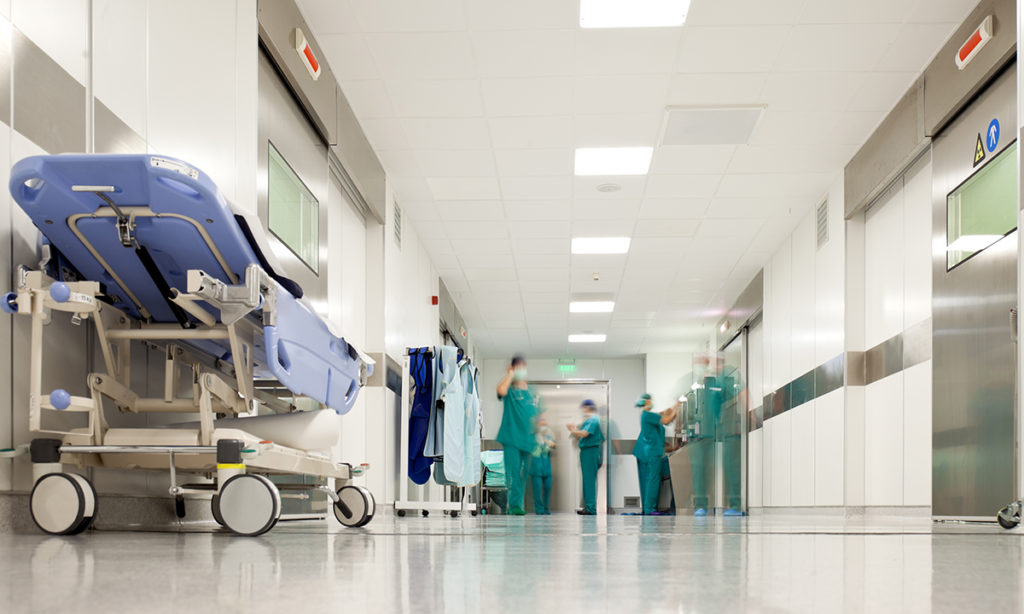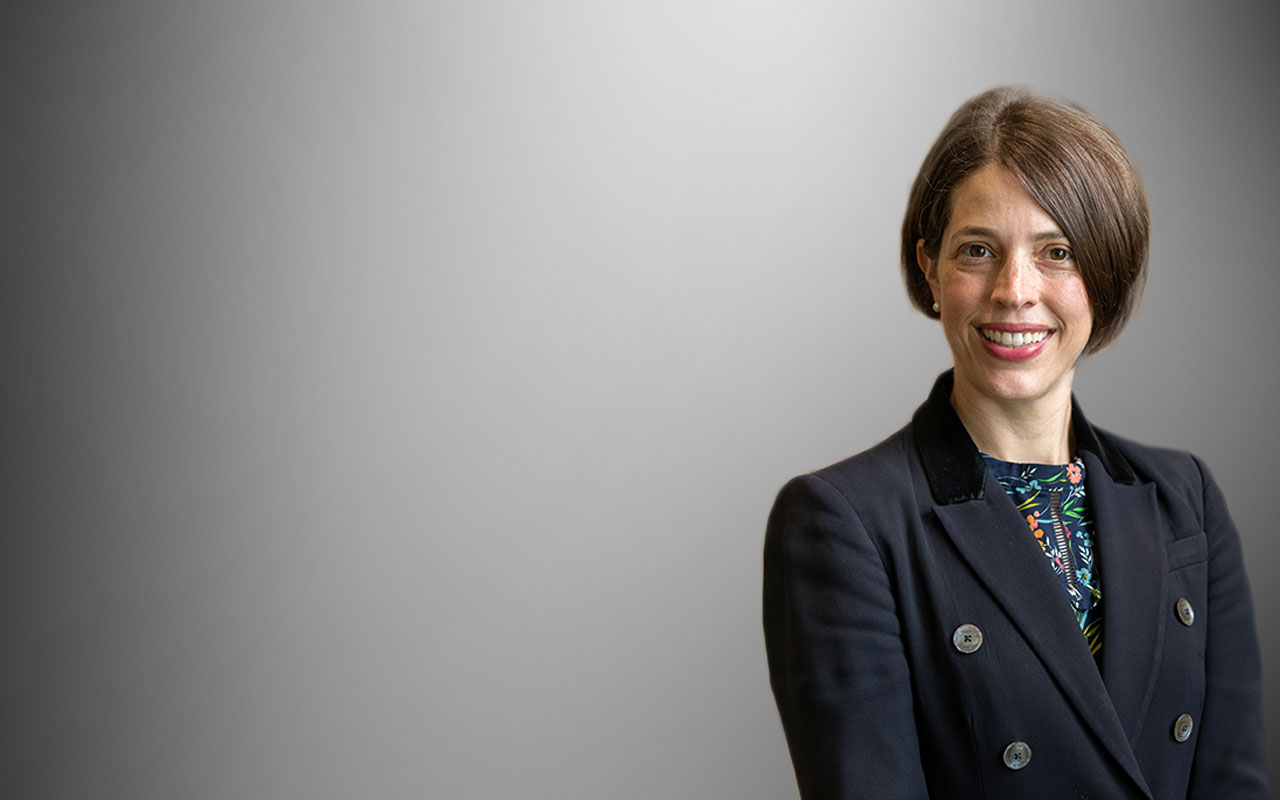In this first article of a two-part series, oncologist and clinical academic Dr Marion Mateos discusses the challenges she faced as a young consultant when the COVID-19 pandemic began.
Just two weeks after starting my first established consultant role, the world was plunged into coronavirus disease 2019 (COVID-19) chaos. Suddenly, the chatter of multidisciplinary meetings and corridor consults was replaced by 8 am daily Zoom calls to discuss COVID-19 cases, COVID-19 protocols. Every meeting was now virtual.
The challenge of adjusting to this new COVID-19 world exacerbated the inevitable pressures I felt as a new consultant, combining clinical work and research, with so much to learn. It was exhausting, also dealing with sleep deprivation associated with a 7-month-old baby at home and an overactive 4-year-old. Face-to-face consults treating febrile children added to the anxiety. I feared bringing COVID-19 home.
I wanted to be the best possible oncologist as well as the best possible mother.
We have all faced enormous challenges learning how to manage during the pandemic, and now into “COVID normal”. In this first part, I highlight the key challenges I have encountered as a young oncologist. The second part of this series will include some suggestions for strategies to support doctors and scientists of the future.

As a young oncologist, with a young family, there was the inevitable struggle to maintain a balance between work and home life, especially during the peaks of the COVID-19 burden. It was at these times that I wished I could clone myself or become a superhero. In fact, if I added an extra letter and a space to my name, I could turn into Iron Man, my son’s favourite superhero. I longed to bring Iron Man superpower to cure kids with cancer. I recall the helplessness of losing a patient to high-risk brain cancer, and witnessing the pain experienced by the parents. The idea of Iron Man superpowers felt woefully inadequate. We needed more clinical trials. We needed miracles.
As a clinical academic, I find the harsh realities of the clinic are often counterbalanced by the hope of research discoveries to help future patients. However, was “curing childhood cancer” a fundable question when many people worldwide were dying of COVID-19?
Fast forward a few months later into 2020, and I soon discovered the silver lining of the pandemic. Work practices were more flexible and there was no overseas travel to conferences to take me away from my family. Telehealth appointments supported patients from rural and regional areas and offered increased flexibility for local families. Online national forums enabled discussion about challenging oncology cases or research opportunities. Unfortunately, this new “metaverse” also meant the loss of networking opportunities with overseas colleagues – natural connections that are easier made face to face. I roused myself for a 2 am conference presentation during a family holiday and could not fall back to sleep afterwards. These were some of the new challenges and opportunities of the virtual world.
Experiencing life as a young consultant during COVID-19 and lockdowns also meant there were fewer opportunistic discussions about a patient and fewer moments to provide peer support. I was juggling clinical and research interactions with a plethora of hybrid virtual encounters. What, when and how to prioritise? I was balancing this with the complex medical needs of my patients, such as a patient with acute pericardial tamponade and cancer. We all know who deserves our primary focus. If I were to turn the clock back three years, I would reach out to my colleagues for a brief touch more regularly by phone, for perspective and to normalise my experience.
In hindsight, my feelings reflected a sense of COVID-19-induced professional isolation. It is easy to underestimate the impact of COVID-19 from a professional standpoint. Initially, I thought my feelings reflected the imposter syndrome phenomenon – a constellation of self-doubt and the inability to internalise feelings of success, despite evidence of prior achievements (here). Imposter syndrome has been well described in medical circles and academia. I have been both surprised and comforted to hear senior medical colleagues voicing “I feel like an imposter”. Relating to imposter syndrome was critical to identify my own potential personal vulnerabilities in difficult patient situations and in protecting against a sister entity, burnout. My bigger realisation here, however, is that COVID-19 has isolated us professionally and physically for the past three years.
So what other lessons has COVID-19 taught us? The pandemic has taught me to take the wins; for example, a stable magnetic resonance imaging scan in a child with a high-grade glioma, clinical remission for a child with high risk leukemia, a negative positron emission tomography (PET) scan for a patient treated for advanced stage Hodgkin lymphoma. Living through the COVID-19 pandemic has also reminded me that we cannot know, predict or control everything. We will fall short of some families’ expectations despite doing everything humanly possible.
From a personal perspective, COVID-19 has taught me that human interactions matter on many levels. I relish the human touch. I consider myself fortunate that I managed to hold and comfort my grandmother as she died last year. A few weeks later, more restrictive COVID-19 lockdowns would have prevented me from visiting her. In that same lockdown period, two more of my young patients died from high-risk brain tumours. After an emergency visit to one of these patients on a weekend, my oldest son asked me “Mummy, why do you have to go to work? Will you make that kid better?”.
Lastly, COVID-19 has also taught me to navigate the medical system from the eyes of a doctor and as a mother. Entering an emergency department full of children, with the potential of severe acute respiratory syndrome coronavirus 2 (SARS-CoV-2) infection, is confronting. Surely for a child, it must be frightening to be approached by someone wearing a mask, gown, and goggles. During the peak of COVID-19 admissions, I recall the vulnerability of my youngest son as he waited for an emergency operation in my workplace. I feel that those human experiences, in the flesh, have only helped me grow personally and professionally.
The COVID-19 pandemic has taught me that we need in-person interactions to propel us through the day, to motivate and inspire, as well as to nurture people in real life.
Dr Marion Mateos is a paediatric oncologist based at the Kids Cancer Centre in Sydney and clinical academic in the School of Clinical Medicine at the University of New South Wales.
This is the first article in a two-part series from oncologist and clinical academic Dr Marion Mateos. Read InSight+ next week for part two.
The statements or opinions expressed in this article reflect the views of the authors and do not necessarily represent the official policy of the AMA, the MJA or InSight+ unless so stated.
Subscribe to the free InSight+ weekly newsletter here. It is available to all readers, not just registered medical practitioners.
Are you a doctor with a personal story to share? Find how to get published in Insight+ by emailing mjainsight-editor@ampco.com.au.

 more_vert
more_vert
Thank you for your insightful, humane reflection.